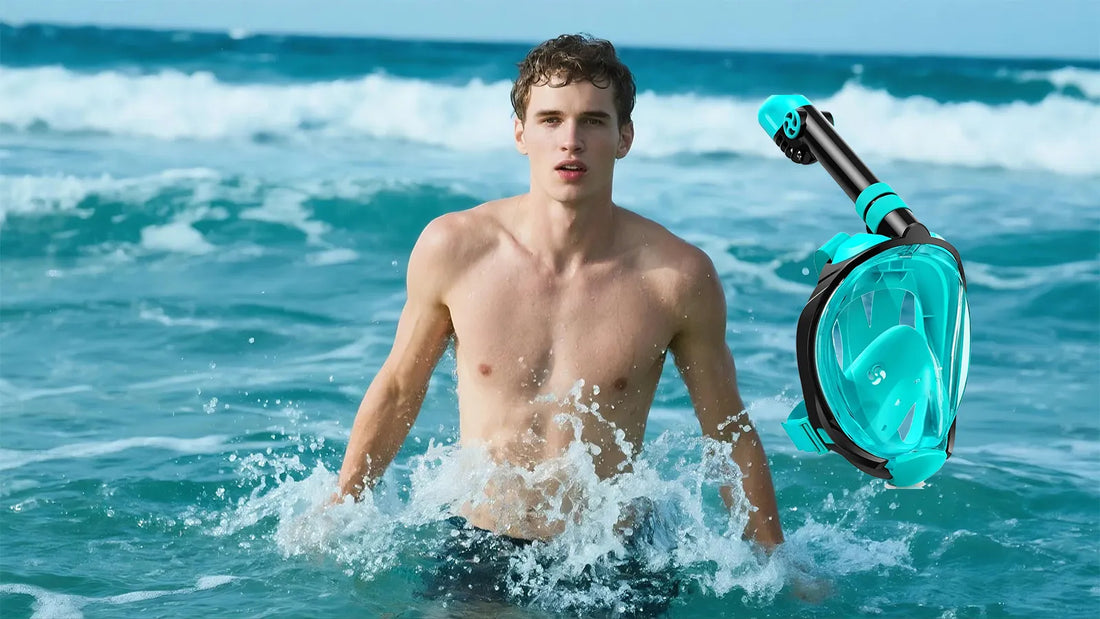Have you ever dreamed of exploring the vibrant coral reefs, swimming alongside exotic marine life, or discovering hidden underwater treasures? Getting your scuba diving certification is the first step to turning these dreams into reality. Whether you're an adventure seeker or someone who simply loves the ocean, this guide will walk you through everything you need to know to become a certified scuba diver.
Why Get Certified?
Scuba diving is an exhilarating activity, but it also requires proper training and knowledge to ensure safety. Certification is not just a formality; it's a crucial step that equips you with the skills and understanding needed to dive responsibly. Certified divers are trained to handle equipment, manage underwater emergencies, and respect marine ecosystems, making the experience safer and more enjoyable for everyone.
Step 1: Choose the Right Certification Agency
The first step in getting your scuba diving certification is selecting a reputable certification agency. There are several globally recognized organizations that offer scuba diving courses. These agencies provide standardized training programs that are accepted worldwide. Research the options available in your area and choose one that aligns with your goals and preferences.
Step 2: Enroll in a Beginner's Course
Once you've chosen a certification agency, the next step is to enroll in a beginner's course. These courses are designed for individuals with little to no diving experience. The curriculum typically includes three main components: theoretical knowledge, confined water training, and open water dives. The theoretical portion covers essential topics like dive physics, physiology, and safety procedures, while the confined water sessions allow you to practice skills in a controlled environment.
Step 3: Complete the Theoretical Knowledge
The theoretical knowledge component of your scuba diving certification is crucial for understanding the principles of diving. This part of the course is often completed through online modules, classroom sessions, or a combination of both. You'll learn about the effects of pressure on the body, how to plan dives, and how to use dive tables or computers. Be sure to take your time with this material, as it forms the foundation of your diving skills.
Step 4: Practice in Confined Water
After mastering the theoretical knowledge, you'll move on to confined water training. This is where you'll get hands-on experience with scuba equipment and practice essential skills like clearing your mask, managing buoyancy, and recovering your regulator. Confined water sessions are typically conducted in a swimming pool or a shallow, controlled environment, allowing you to build confidence in a safe setting.
Step 5: Complete Open Water Dives
The final step in obtaining your scuba diving certification is completing a series of open water dives. These dives take place in natural bodies of water, such as the ocean or a lake, and allow you to apply the skills you've learned in a real-world setting. Under the supervision of your instructor, you'll demonstrate your ability to plan and execute dives, manage your equipment, and respond to potential challenges. Most certification agencies require a minimum of four open water dives to complete the course.
Step 6: Receive Your Certification
Once you've successfully completed all the course requirements, you'll receive your scuba diving certification. This certification card is your passport to diving adventures around the world. It serves as proof that you've met the necessary training standards and are qualified to dive independently or with a buddy. Keep your certification card with you whenever you dive, as many dive centers and resorts require it before allowing you to participate in diving activities.
Tips for Success
Getting your scuba diving certification is an exciting journey, but it can also be challenging. Here are a few tips to help you succeed: Stay patient and take your time to master each skill, practice regularly to build confidence and improve your abilities, and always prioritize safety by following your instructor's guidance and adhering to diving protocols. Remember, the more you dive, the more comfortable and skilled you'll become.
Explore the Underwater World
With your scuba diving certification in hand, a whole new world of adventure awaits. From exploring coral reefs teeming with life to diving into mysterious underwater caves, the possibilities are endless. As you gain experience, you can also pursue advanced certifications that allow you to dive deeper, explore wrecks, or even take up underwater photography. The ocean is a vast and beautiful place, and your certification is the key to unlocking its secrets.
So, what are you waiting for? Start your journey today and take the plunge into the incredible world of scuba diving. With the right training and a sense of adventure, you'll soon be exploring the wonders of the underwater realm like a pro. Dive in and discover the magic that lies beneath the surface!

